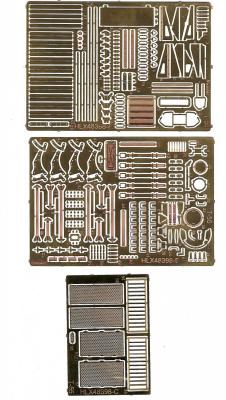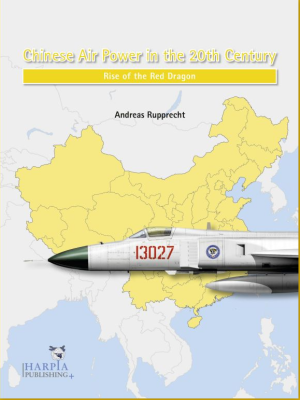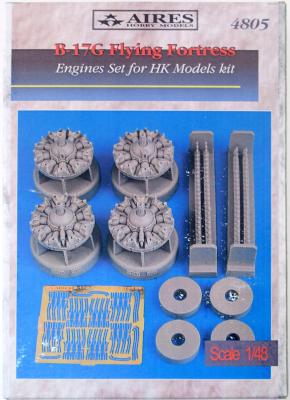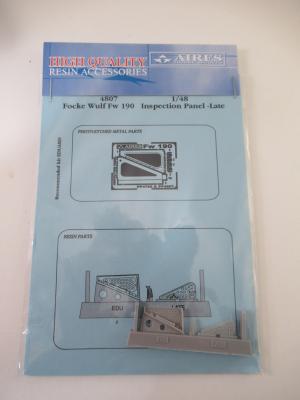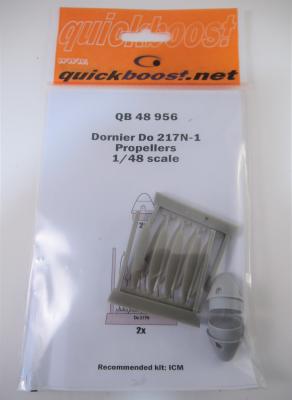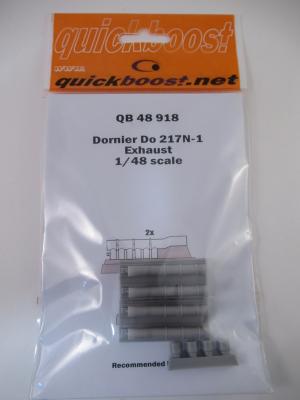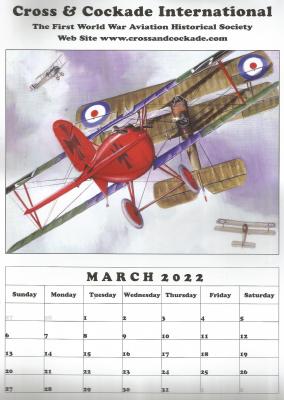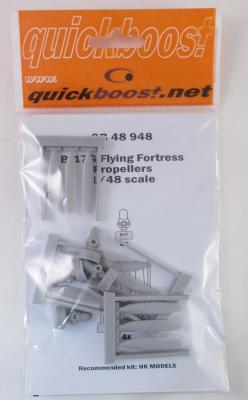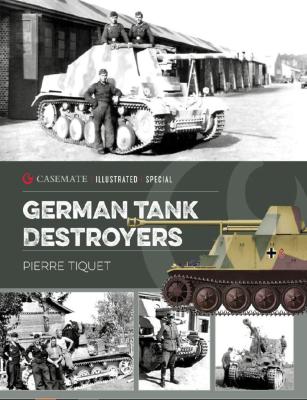Armor builders have long used photo etch parts to get realistic thickness of parts. So why wouldn’t they want the same in the smaller scales? With Tamiya revitalizing the 1/48th scale armor market it was just a natural fit. The latest is the Soviet T-55 and Hauler has you covered.
Inside of a resealable package are two light grey resin pour blocks that feature new ammo boxes and some lights. These are way too small to produce accurately in injection plastic. In addition to the resin pieces are THREE frets of brass photo etch. To say that this set is comprehensive is an understatement. There isn’t a part of the basic kit that isn’t touched by the photo etch. You will need a magnifier to use some of these parts. The finesse is exceptional. Besides grills, there are latches and supports for the fuel drums, which are beautifully rendered. The turret and driver’s hatch get the PE touch inside and out.

